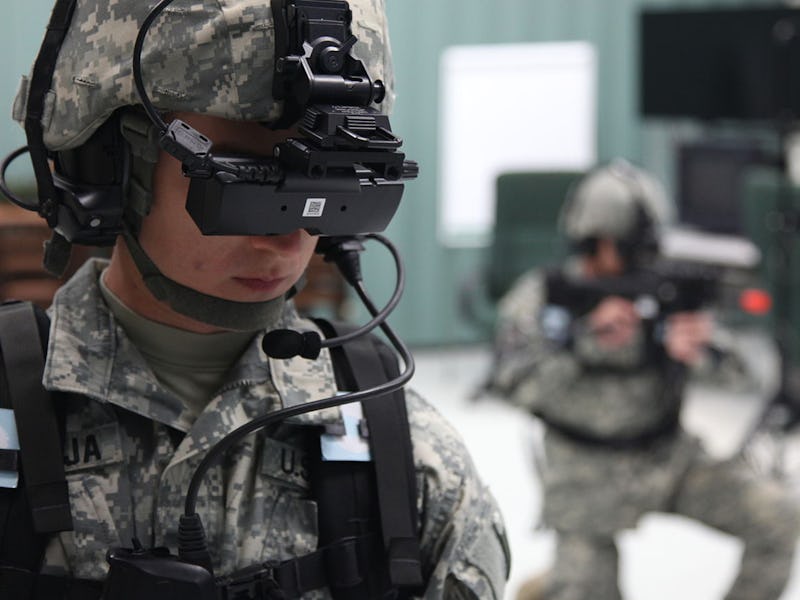Near-death experiences are ideal scenarios for the existentially fearful: The immediate payoff is that you don’t die — and moreover, the very experience of nearly dying is said to reduce fear of death and enhance belief in life after death. Scientists believe this result stems from the altered state of consciousness that near-death experiences induce. They’ve also discovered that you don’t have to nearly die to have that experience.
According to new research published in PLOS One, all you need to do is strap on a virtual reality headset with a wide field of view and get thrown into an immersive environment that gives you the sense of being disconnected from your body. What results is euphoria, sweeping images of a life lived, and the perception of an out-of-body experience. That experience, the researchers write, convinces people that “survival beyond the body is possible.”
In the study, 32 female participants each had vibrating devices placed on their ankles and elbows. Once the experiment began, the researchers activated the devices to make the participants feel like virtual balls were falling on them; when each ball fell, a tiny vibration would emanate from the devices. They then changed the visual perspective in the headset from a first-person to third-person view. At this point, the group was split into two: A control group continued to feel the balls hit them as their visual perspective changed, while the experimental group stopped feeling the tactile sensation.
What the participants looked like vs what they saw.
After the virtual reality segment, the participants filled out two questionnaires. In the first, they were asked to rank how efficient the out-of-body experience was, and in the second, they measured their fear of death in degrees. Their feelings about questions asking how participants felt about “the shortness of life” or “the total isolation of death” were quantified with a number, one being not afraid and five being very much afraid.
The scientists found that the “experimental” group ranked much higher on the sensation of having an out-of-body experience. In turn, this group of people also reported being less afraid of death than the control group. When their viewpoint was lifted above their bodies and their virtual selves were left behind, they also left behind some of their fears surrounding death.
“Our results open up the possibility that the virtual out-of-body experience provides an implicit learning that consciousness in the sense of the center of perception can be separate from the physical body,” the scientists write, “and that therefore death of the physical body is not necessarily the end of consciousness.”
